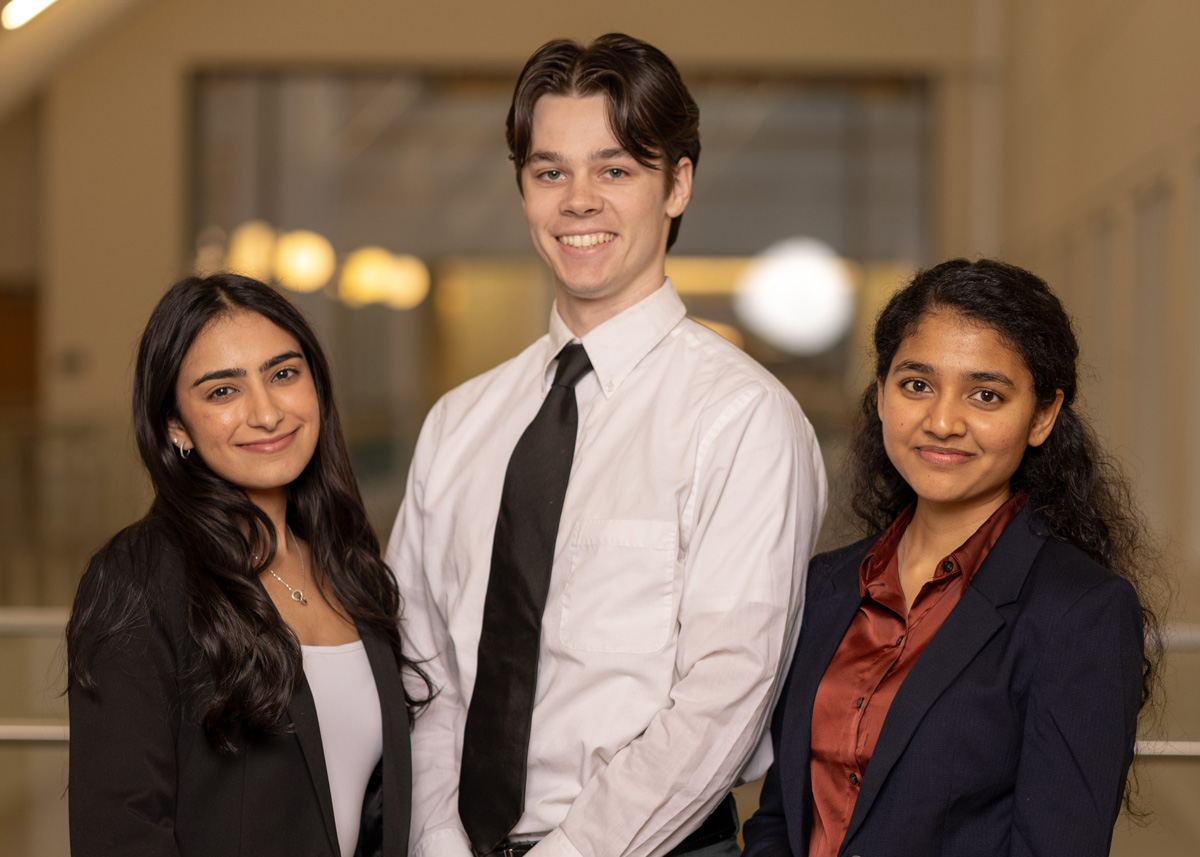For the second consecutive year, a team from the Quantitative Biomedical Sciences (QBS) program at Dartmouth’s Geisel School of Medicine has finished in the top five (out of 30 teams) at the National Big Data Health Science Student Case Competition.
The fifth annual event, held virtually in late January and hosted by the University of South Carolina, included graduate and undergraduate students from 17 universities across the U.S.
Each year, the competition gives teams the chance to apply their skills to the analysis of big datasets in healthcare settings. The event is designed to be an experiential learning opportunity that assesses students’ analytical, collaborative, teamwork, communication, and presentation abilities in order to contribute to the development of a talent pipeline in big data health science.
This year, the teams were tasked with developing an efficient method of classifying electroencephalogram (EEG) sleep data and deploying a machine learning model to address chronic sleep disorders, a problem that affects nearly 70 million Americans. They then had to present their proposed solutions within 24 hours to a panel of expert judges from industry and academia.

Geisel entered four teams in the competition—with the team of Alec Buetow, Sai Lakkireddy, and Riya Mehta, known as the Standard Deviants, placing fourth and earning a $500 reward for their efforts.
Reflecting on the experience, Buetow says, "The competition drove us to dig deep into both our biological and technical backgrounds, integrating the two to address a multifaceted challenge. We found ourselves navigating through what felt like uncharted territories of sleep research, blending data science principles with domain-specific knowledge to develop innovative solutions, a journey in which our preparation from QBS was invaluable."
Mehta adds, "Participating in this competition gave me the opportunity to blend my biology background with the technical expertise that I've gained through the QBS program. Developing a machine learning model with EEG data introduced me to the field of sleep research and provided me with invaluable real-world experience in healthcare analytics, a field I’m interested in entering post-graduation."
Last year, when the QBS program made participating in the event a mandatory part of its capstone course, it fielded 10 teams, winning four of the top seven places. “Winning is great and getting visibility for our program is certainly something we have appreciated,” says Chandlee Bryan, MEd, career services manager for graduate programs at Geisel.
“But I think the real value is in allowing students to interact with people from across the country, while working with a team of peers to solve and present their solution to a challenging problem in a short amount of time,” she says. “It’s an invaluable experience that will serve them well in their careers—whether they end up focusing on health data science, medical informatics, epidemiology, or on addressing other real-world problems.”